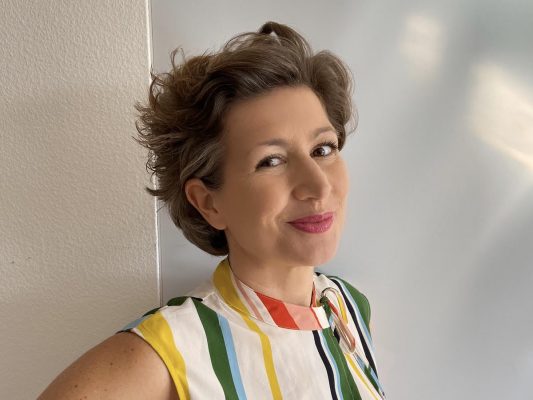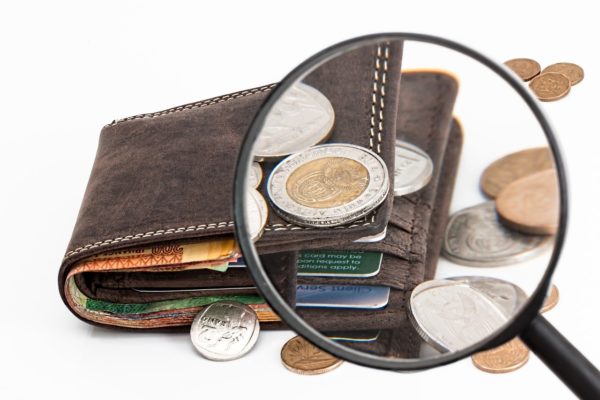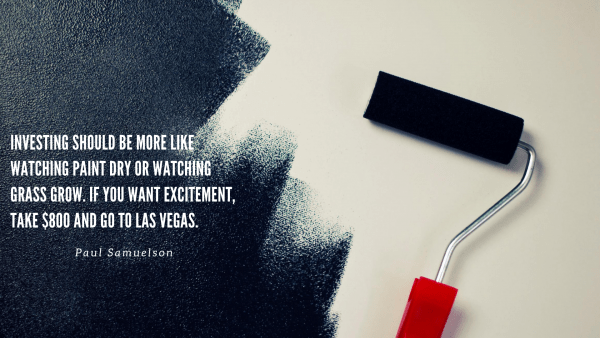Family and Kids
Every transaction is an expression of values – Dr. Mara Harvey
Adam Smith, the most celebrated Scottish economist, philosopher and author as well as a moral philosopher once said “All money is a matter of belief”. As an ardent follower of his philosophies, Dr. Harvey also believes that mindful transactions and investments can accrue to create much better and moral world. In this section of our interview with Dr. Mara Catherine Harvey, we discuss on the importance of Investment, Sustainability and her future projects. You can read the first installment of this interview, here, where she discusses on the challenges of working women.

Source: www.responsability.com
Vivamost: What were your earliest experiences with money consciousness and were you raised to be aware of the importance of wealth right from your childhood?
Dr.Mara Catherine Harvey: In fact, money was never a topic in our household when I was little. We always got a bit of pocket money on the weekends to buy a few candies or so, but for the rest, we never really had budgets and monthly pocket money to manage. And, then things changed dramatically when I was about 10 years old, my parents separated quite suddenly. My mother had to leave the country with us children, literally from one day to the next. My mother had not been employed while living in England and imagine how hard it can be as a foreigner, abroad, without a job without any money because my father just left us and stopped paying anything from one day to the next. She had no resources and was forced to move back home to Switzerland. So then money really became a big concern. But, again, it was more about earning a living and saving and my mother was always in the mode of – “you need to make sure you have a job and save so that you’re always independent” – it was more about security and independence but it was never about investing. In fact, I don’t think my mother ever invested a penny of her savings over her entire lifetime which is quite tragic, if you think about it.
V: Then, when did you realize the importance of investing?
Dr.MCH: I studied economics and so logics of compound interest was clear to me. Although I started working in finance after my doctorate, I was doing nothing with my savings. But that’s also because of the particularities of working for a bank that serves the wealthiest people on the planet. We tend to think that what we put in our bank account is just way too small to be relevant. What am I gonna do with this small amount of money compared to what we’re doing everyday for the super wealthy? A decade went by like this and one day as part of my research on female clients’ wealth journeys, I asked our Chief Investment Office if they could simulate a woman’s wealth accumulation over a life time. The hypothesis was for a professional woman, who works all her life and her trajectory is exactly the same as a man’s and assuming there is a pay gap of 10%. The results were shocking! Just a 10% pay gap can lead to a 40% wealth gap. If you add the fact that many women have a lower risk appetite than men, and invest in low yielding asset classes, the gap continues to widen. That for me was the trigger point in terms of awareness. If you don’t actually have a financial plan and steer your investment strategy, you’re just going to be on the losing end of life, because your low risk appetite is going to amplify that gap. This was in 2017, just a couple of years ago, when I realized the magnitude over a lifetime of being too idle or just too cautious or just not knowledgeable enough to start investing. Couple that with longevity and the increasing life span our children can expect to live: financing that longevity is a major structural challenge for our society. And that is what led me to writing a book for adults, “Women and Risk” (2018) and a children’s book series “A Smart Way To Start” (2018), to encourage a better dialogue around money management as a life-long skill.
V: In your books, you also discuss about Sustainable investing. When was the first time you got introduced to sustainable development?
Dr.MCH: Terribly late! Of course, we all know that there are environmental and societal problems but often we don’t really grasp the magnitude of it and how much influence we all can have on our planet. I think it was 10 years ago that I started to become conscious of the fact that if we don’t change our own behavior, what are the chances that other people will? Another thing that was eye opening was the first time I traveled to Nepal to visit certain charitable foundations. The thing that shocked me was rather basic. There is waste all over the place. If you travel into the countryside, there is just plastic and rubbish everywhere. I wondered, why do people throw the waste on floor, until I realized there is no waste collection. There’s no infrastructure.. There is nobody coming to pick up your waste and that’s what shocked me: I understood that you can’t just blame the behavior of people in these countries.
That’s when I realized that we all have a role to play. We have a role to play as consumers, we have a role to play as entrepreneurs, we have a role to play as government, we have a role to play as NGOs and so on. Because if I were responsible for a company that packages products in non-biodegradable material, if I’m going to export that stuff to a country that doesn’t have a waste collection and that doesn’t have a recycling unit, it’s lethal. We can’t just accept that we sell goods to them and we don’t care about the environmental consequences. We have got to put ethics back into the equation. I just think it’s not okay to be strictly driven by shareholder value, we should also care about what happens after the product is sold and used. But, the good news is that there’s a lot of innovation going on. I was recently at a conference in London where they were talking about bio-fabricated materials that are way less damaging for the environment. So I’m quite hopeful that we’ll be able to find global solutions. And these are the messages I want to share with children too, by raising the topics of sustainability and responsible consumption at a very early age. I would love to rewind the clock and be more conscious about how all my spending and investing decisions have impacted this world over decades. My hope is that the next generation will be empowered to know that their money choices matter. And that money is not just a transmission of value, it’s a transmission of values. That is at the heart of my children book series, A Smart Way To Start.

Source: www.smartwaytostart.com
V: Why did you choose writing as your medium of communication? Is it because you love writing or do you think that it is the best way to convey the message?
Dr.MCH: I think for me, writing was the best way to convey my message. For me it really was about wanting to see the change happen and wanting the world to be fair, wanting women and girls not to have to fight like in past but define a world in which you can be a woman you can be yourself and you can be valued for what you are and who you are, without always having to try to fit into a system that wasn’t ever made for you. So, I think change is really what drives me. The writing, especially the children’s writing and rhyme, happened by accident. But, it’s been such a fun journey and such a lovely, creative journey and it’s given me so much joy. Just working with my illustrator to bring this whole new world to life has brought so much enjoyment to a topic that is so important to me. It’s been a win win.
And, when people ask me, how do you have time to do all of this in addition to your job? Well, there are two answers to that. The first is – I don’t do Netflix and the most serious one is, since I started writing these books, I realized how much I was working before. I was doing equivalent to two full time jobs and being paid for one. Now that I decided I’m actually going to do one full time job, I’ve got time to do things I want to do. And yes, it is very time consuming and yes, my kids complain “Mom you’re always working” but I reply: “No I am having fun”.
I don’t think I necessarily had a flair for writing. And as such, I think I do have a very analytical mind. When I wrote my PhD, my professor read my thesis and gave feedback, he said my work is encyclopedic because I had tackled every angle in great depth. That’s who I am. If I tackle a problem, I’m going to go deep. And that’s just how the writing happened. I really had a message I wanted to convey, I wanted to convey not just a little message but the entire message.
V: Let’s talk about your next book which is going to be on SDG – Start Doing Good – that focuses on Sustainable Development Goals adopted by all United Nations Member States. When is the release?
Dr.MCH: Oh, very good question, indeed. The backbone of the book is largely written. I’ve written rhymes on every single SDG but I just haven’t decided whether that’s it or the book needs to be a more detailed explanation of every SDG. Should it be the short version, so that the children can familiarize with all the 17 SDGs are or should it really be a learning journey into every SDG? I need to spend a little bit of time over Christmas figuring out the answer to that question. At any rate, I think probably by end of Q1 2020, post the illustration work, it should be ready.
V: Is it also going to be a series like “A Smart Way to Start”?
Dr.MCH: No, it would just be one book. It complements the existing series.
V: I can clearly see how passionate you are about the work you do. Be it creating wealth awareness among women and children, or educating on sustainable investment or being an amazing advisor to various causes. But, in order for your influence to reach more people, you need support. Obviously you can’t do it all alone. We want to know, how one can help in spreading your cause to masses?
Dr.MCH: What I would love is for people to spread around the fact that money is an expression of values. Every transaction, every day is a financial expression of your values. You can either say, I care, and these are the values that I want to be respected or you can be oblivious and say I’m not paying any attention to it, which means you’re letting other people take those decisions for you. I think the world would be a much better place if we could all just be mindful that every single money transaction is an expression of our values. We make so many choices everyday as a child or an adult or as an entrepreneur and the beautiful thing is knowing that if you are aware, it’s not very hard, you don’t have to throw your life on its head completely. I really think that if we can spread the message of money and an expression of values, and put ethics back into the discussions around money, the world will be a better place. That’s what I would really love from the people who engage with my books, to say money, equality, sustainability and empowerment are the values that should go hand in hand. If we can create a community of people who help accelerate carrying these messages across the world, I think we can do something good.
V: What are your future projects?
Dr.MCH: I would like to work on other money related topics like donating money. An explanation on why is it important also to share and to do good things for other people? That’s another money lesson that needs to be in the series. Very briefly in the book A Smart Way To Spend, we explain on what can children do with gift-money, but I think it’s something that also needs more dialogue for children so that they really learn to appreciate money gifts.
And the other thing I’m working on is Christmas stories, nothing much to do with money but I do love them very much. Last year, I wrote a Christmas story which we’ve been publishing as an advent calendar every day this December. And this year, I decided that I would write another Christmas story that will then come out next year and it’s going to be an advent calendar again. It is going to talk about all of those things that money can’t buy. You know, all of those things that we really enjoy, and the little pleasures, the nice things in life to complement this whole dialogue around money. The story which is about enjoyment and pleasure and friendship and sharing and other little bits and pieces. I love Christmas and I love the month of December and the entire winter season.

Source: www.smartwaytostart.com
About Dr. Harvey:
As a leader in one of the reputed and pioneering banking companies, UBS, Dr. Mara Catherine Harvey is already an accomplished person in the society. She holds a doctorate in Political Economy alongside two decades of extensive experience in financial background. She heads the Ultra High Net Worth businesses for Germany, Austria and Italy. All of this, however, hasn’t appeased Dr. Harvey to pursue additional responsibilities that can address social shortcomings. Time and again, she talks at international conferences on topics such as gender equality and women empowerment. And, she is a polyglot with fluency in English, Italian, French and German.






Photocredit: (c) Natalie von Harscher Fotografie, Zug